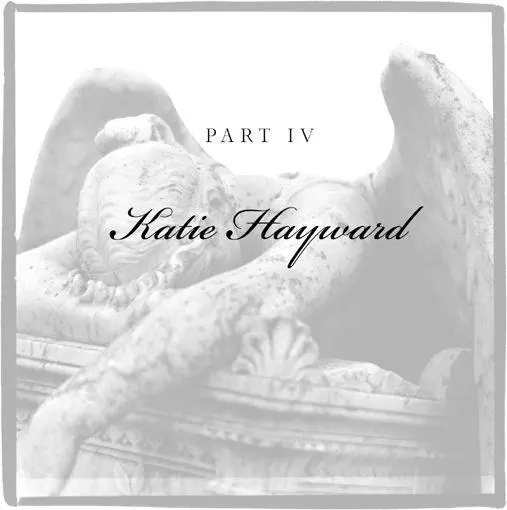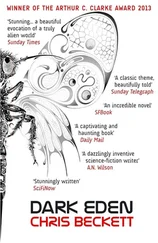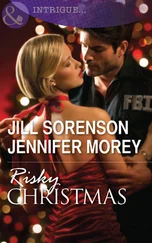Their struggle that evening was about our mother’s drinking. At least that was what on the most obvious level had led our father to start in on her. On another level he had undoubtedly been angry at himself for dinging the garage door. And while I expected my mother to fight back by observing that he wasn’t exactly a teetotaler, instead she brought up some woman from his office with whom, she implied, he was having an affair. In reality I have no doubt that her language was far more specific and colorful. Sufficiently specific and colorful that he said she had a sewer for a mouth and he couldn’t believe he had ever once kissed it or (and Amanda insists that we have not made this up, our father really did say this) stuck his penis in it-though, again, he did not use so clinical a word as penis .
At first we listened in on our parents’ fight from a perch atop the couch, but when we heard the rapid-fire sound of her open palm on his cheek and then the grunt as he punched her hard in (we would learn later) the abdomen, we dove over the back of the couch and hid underneath the table behind it. A moment later, our parents moved from the kitchen to the living room. Amanda and I have deconstructed what happened next any number of times in our adult lives, trying to make sense of what we heard or thought we heard in light of what we would discover later about the confusing and disturbing place where violence and adult sexuality sometimes intersected. Had our father sodomized our mother against her will that night over the front cushions of the couch? Had she asked him as he worked hard to hurt her whether he did this to his girlfriend, too? Had he told her, as the couch shoved the table against the wall and I almost cried out myself as one of its wooden legs tore a strip of skin off my pinkie, that she was a completely unfit mother and everyone would have been better off if he’d only fucked her there all these years?
There . The word that decades later Stephen Drew would insist symbolized everything for him one tragic summer and autumn.
“You know,” Amanda was saying now, “those troopers acted like they suspected Norman and me.”
“You? Why?”
“Well, Norman and I don’t make the best presentation, if you get my drift.”
“I thought they were just checking Stephen’s and my story.”
She chuckled and took a small sip of her soft drink. I noticed how carefully she nursed it, and I presumed this was a habit from drinking beverages that might have actual calories. I had drained my second glass of wine, and she had barely made a dent into her first diet soda. “Oh, they were. But when you meet a fellow with a criminal record who is as badly socialized as my Norman and a woman with my”-and here she paused, choosing her words carefully-“issues, you think they might be capable of anything. Anything bad, that is.”
After our father had finished with our mother, he slapped her one last time on her rear, and the sound was so sharp it echoed. Later I would think his hand must have hurt, too. Amanda and I wouldn’t go upstairs until our mother had lurched disconsolately into the bathroom (powder room in her vernacular) to clean up. We moved quickly but silently, because we understood that neither parent could ever know all that we had overheard. The next morning there would still be a small Rorschach of blood-a tree leaf, maybe, perhaps that of an oak-on the rug by the base of the couch, and the slipcover from one of the cushions would be in the laundry.
“I knew they thought I might have been involved,” I said. “But the two of you? That’s absurd.”
She shrugged. “Maybe. But I can see them looking at either you or me. Let’s face it: We’re both pretty damaged goods.”
Had she meant to be hurtful? It was possible. She knew that I didn’t view myself as any more damaged than most mortals. She knew that I took comfort in the way I was held close now by angels. When I said nothing, unsure how to respond, my older sister continued, “Seriously, Heather, just because our parents’ marriage was a disaster in every conceivable way, you shouldn’t assume all relationships are. My advice? Spend less time with your cherubim and seraphim. Spend more time with real people.”
“You’re the one living in the woods with the world’s quietest man,” I reminded her.
“And I’m a disaster. I’m nobody’s role model, least of all yours. But until you cut bait once again on what had the potential to be a terrifically normal-perhaps even healthy-relationship, I always presumed you were doing a lot better than me.”
There was never going to be anything normal or healthy about my involvement with Stephen Drew, but I was not going to argue that evening with Amanda. I remembered that Tuesday at the end of July when I had first met him: Originally I thought that I had gone to see the pastor of a small country church, because he’d seemed so lost to me in the newspaper and I presumed my history could help him. Could help his community. Only later would I admit to myself that my motivation may have been slightly different-or, at least, more involved. On some level it was likely that I had been drawn to Haverill that afternoon by the inexorable gravity of memory. By my own fathomless scars. We may talk a good game and write even better ones, but we never outgrow those small wounded things we were when we were five and six and seven. When we were in grade school and hiding behind the couch. It’s why we need angels.
And there was something else that was always going to preclude any rapprochement with Stephen: There was that small detail that he was capable of murder. I understood the justification, and I appreciated the fury he must have experienced when he came upon the scene-when he saw his former lover dead on the floor in her nightgown. I was not unsympathetic. But I also knew that I wanted nothing to do with him ever again.

***
The fights were horrible, but the silences might have been even worse. No one could do silence like Mom and Dad. Especially Mom. We’re talking plasma TV with the mute button on. It was her way of fighting back, and it just drove Dad crazy. Because the thing was, after he’d hit her, he’d be all contrite and sorry and want to make it up to her. Breakfast in bed, sit with her on the couch and watch whatever she wanted-even Sex and the City reruns (which he hated), if that’s what was on. And that was the time when Mom was in the driver’s seat. Of course, it also meant that the fighting could drag on for days. Dad would hit Mom, Mom would clam up, and Dad would go from sorry to sulking to pissed. Not a promising cycle, if you get my drift.
Now, they had friends. My dad had his buddies in the volunteer fire company and people who worked at his stores and his restaurant. I think he was probably a pretty good boss. And Mom had chums, too. Some people said Dad took away Mom’s friends, and there were definitely some women he didn’t want her hanging around with. That’s true. But he didn’t stop her from seeing everyone. Mom still had the crumblies in the Women’s Circle and Ginny O’Brien-who was also in the Women’s Circle but was a couple generations short of crumbly. And there is nothing that Ginny wouldn’t have done for Mom. Nothing. And I guess she had her friends at the bank. But the thing is this: Even if my mom had had lots of gal pals, the last thing she wanted was for people to think that her marriage was a failure and she was, like, a total victim. A total loser-because she wasn’t a loser, at least in my opinion. This was really clear when I would visit her at the bank branch on Saturday mornings, which I did pretty often by the time I was in middle school, because it was near stores and it was a chance to get out of Haverill. I saw her with the tellers and a man named Frank Albertson who was a commercial loan officer there. She was totally professional. She was completely different from the way she was at home. I wish she had known how good she was.
Читать дальше












